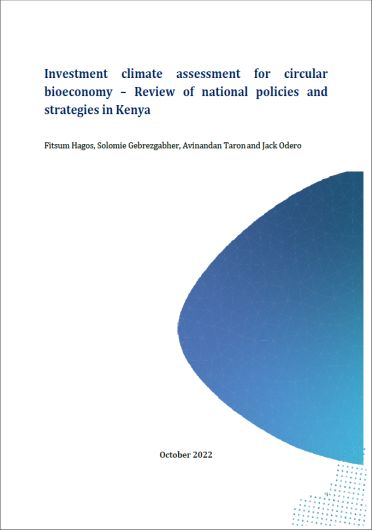Investment climate assessment for circular bioeconomy - review of national policies and strategies in Kenya
Abstract
This study assessed the investment climate for circular bioeconomy in Kenya by reviewing the national policies, strategies and regulations, financing mechanisms, infrastructure and business environment. The study identified key gaps in these areas affecting waste management and entrepreneurship development in the circular bioeconomy sector. There are key developments at the policy level and some developments in entrepreneur promotion in resource recovery from different waste streams. The specific focus of the policies, strategies and regulations in the waste sector, lack of coordination of the relevant sectors in waste management, weak horizontal communication between sectors and implementation and compliance problems are main gaps in promoting circular bioeconomy. Absence of drastic changes in actual behaviour such as waste separation at source and lack of incentives in entrepreneurial development are also critical challenges. While addressing these gaps, the progresses identified need to be further scaled out to make waste management and circular bioeconomy in Kenya sustainable. Establishment of multiple stakeholder platforms involving key actors in the sector and enhancing awareness is important in promoting resource recovery and reuse. Promotion of incubator centres to enhance local capacity and foster uptake of resource recovery and reuse businesses is critical.

